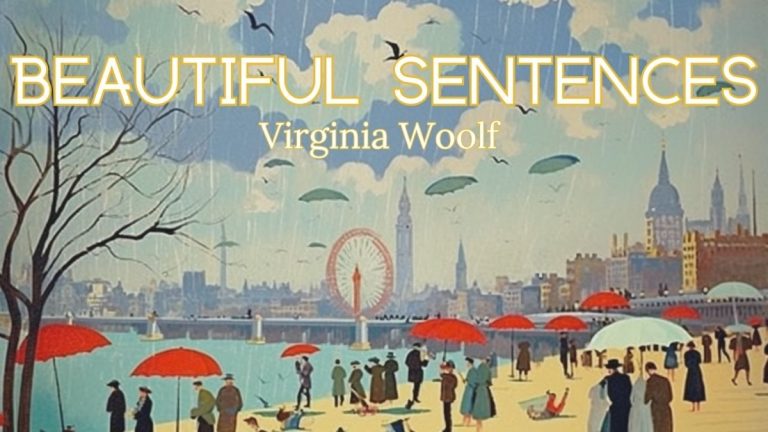Deliberate Practice: Ray Russell, Sardonicus
In the late summer of the year 18—, a gratifying series of professional successes had brought me to a state of such fatigue that I had begun seriously to contemplate a long rest on the Continent.
I had not enjoyed a proper holiday in nearly three years, for in addition to my regular practise, I had been deeply involved in a program of research, and so rewarding had been my progress in this special work (it concerned the ligaments and muscles, and could, it was my hope, be beneficially applied to certain varieties of paralysis) that I was loath to leave the city for more than a week at a time.
Being unmarried, I lacked a solicitous wife who might have expressed concern over my health; thus it was that I had overworked myself to a point that a holiday had become absolutely essential to my well-being; hence, the letter which was put in my hand one morning near the end of that summer was most welcome.
Ray Russell, Sardonicus
As I normally do, I will try to look at this writing from a number of angles.
Sentence Length
[********,***************************.] 35
***********,*******,**********,*********** (******,**,****,********)****************]. 76
[**,*************;*********************;*,******************] 40
It’s worth saying that some short sentences may have long words, and so it might be worth counting syllables rather than words. I will bear this in mind for future analyses.
We can say that Russell likes long sentences. Certainly here anyway, and that might be because he is deliberately doing a pastiche of the prolix Victorian style. He doesn’t even mix short sentences with the long ones. They are all long.
Clause Distribution
See annotations scheme here
[( ) , ___ > ___ ] .
[___ , ( ,( ), )], [ = ( (, ( ), ) ) > ___ ( ) ] .
[ ( ) , ___ > ( ) ] ; [ ( ) > ( ) > ___ ] ; ( ), __ ( ) __ ].
I have just come from reading Henry James’s The Turn of the Screw and you can hear my narration of it on The Classic Ghost Stories Podcast here, and am in the process of reading out A Christmas Carol here, so I’m pretty Victorianated currently.
Henry James was very fond of sentences with sub-clauses bombed in the middle of the main clauses, and sometimes he even stuck a sub-clause inside a sub-clause. This makes him very hard to read out loud, and perhaps to read to oneself too.
Ray Russell does it, but in less jarring a way.
Here’s James from The Turn of the Screw, Chapter 1.
[I slept little that night—(I was too much excited); =and this astonished me, (too), (I recollect), (remained with me), (adding to my sense of the liberality > with which I was treated).
Henry James, The Turn of the Screw, Chapter 1
[___ ( )] ; [= ___ ( , ( ) , ) , ( ) , ( ) ( ) ]
Here’s Russell from Sardonicus again.
[I had not enjoyed a proper holiday in nearly three years], ( for ( in addition to my regular practise) , I had been deeply involved in a program of research), = and [( so rewarding had been my progress in this special work (it concerned the ligaments and muscles, ( and could ), ( it was my hope ), be beneficially applied to certain varieties of paralysis) > that I was loath to leave the city for more than a week at a time].
{ ___ , ( ) , ( ) = , ( , = ,( ), ( ) ) > ( ) __ ]
Even though we have clauses within clauses in Russell, the additional thoughts flow naturally, while in James they inserted sub-clauses give the impression of ideas popping off at tangents. With James, we need to drag our attention back to the main sentence to remember the subject he’s talking about, with Russell we don’t.
Alliteration
Alliteration is not particularly prominent, but there is a run of s sounds, and then some r in the first paragraph
…summer….series…sucesses…state…such…seriously
…contemplate…Continent
…regular…research…rewarding
…loath to leave
have…health…had…holiday…hence…hand
Rhetorical Devices
Apparently, no rhetorical devices in this piece.
Stress Pattern
u u S Su u u S Su, u SuSu Su u uSuu uSu u S S u u S u S Su u u u Su Suu u SuSu u S S u u SuS.
u u u uS u Su Suu u Su S S, u u uSu u u Suu Su, u u S Su uSu u u Su u uS, u S uSu u u S u Su u u Su S (u uS u SuSu u Su, u S, u u u S, S SuSuS uS u Su uSuu u uSuS) u u u S u S u Su u u u u S u u S.
u uSu, u S u uSuS S u u u uSu uS Su u S; S u u u u u uuSu Su u u S u u SuS u Su uuSu uSu u u uSu; S, u Su u u S u u S u Su u u u u u Su u S Su.
What Have I Learned
I have learned that it is possible to write long hypotaxic sentences using polysyndeton that remain clear and flow well. The important thing is to have each clause provide further information on the one immediately preceding it, rather than refer to a subject in a clause that is not next door.
If you do that the piling up of clauses does not detract from the sense of the writing.
Links
Here is a good review of Sardonicus by Ray Russell written on That Shakespearean Rag blog.
A more critical review of Sardonicus is here from Mark Fuller Dillon
And below is an opportunity for you to purchase the book itself. I should note that this is an affiliate link and I will get a small reward from Amazon if you buy it after clicking this link. My affiliate reward will not add anything to your purchase price.




